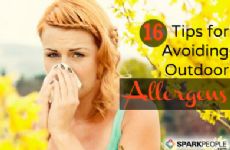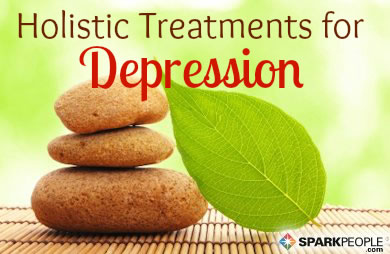|
Mary Poppins might have sworn by a spoonful of sugar for a quick medicinal fix, but for allergies, many sing the praises of a spoonful of nectar from the hard-working honeybee, instead. Maybe you've heard that the sweet and sticky treat, when eaten regularly and procured from a local source, can temper allergies. The theory is that consuming it acts as an immunotherapy, much like an allergy shot. Because honey contains pollen, every time you take the "medicine," you're also ingesting local varieties of pollen, thereby subjecting yourself to your allergen. When introduced to an allergen in small doses, the immune system will eventually develop a resistance. "One tablespoon of local honey per day several months prior to allergy season, then two tablespoons per day during allergy season," is the recommended dosage, according to chiropractor and nutritionist Dr. Scott Schreiber. Raw Honey Health Risks However, that seemingly harmless spoonful of recommended honey doesn’t come from the happy, plastic bear at your grocery store. When people advise eating honey to help with your allergies, they are actually suggesting you eat the raw variety. This type of unprocessed honey can contain bee parts, mold spores and bacteria. With no regulations or uniform certifications for raw honey, you might be consuming more than you realize. Plus, keep in mind that any honey carrying the "pasteurized" label is not raw. Ironically, eating unprocessed honey can cause the very thing you are trying to avoid--an allergic reaction to the pollen or bee parts still contained in the mix. To compound the issue, bees tend to pick up pollen produced by brightly colored flowers, whereas humans tend to be allergic to pollen that comes from grass, weeds and trees that do not contain these same kinds of flowers. "Honey has been touted as a natural allergy reliever, however there is no scientific proof that it works," Dr. Schreiber says. Honey Studies One study conducted at the University of Connecticut divided 36 allergy sufferers into three groups. Depending on their assignment, they were each asked to consume one tablespoon a day of either locally collected, unpasteurized, unfiltered honey; nationally collected, filtered and pasteurized honey; or corn syrup with a honey flavoring. None of the group who ate either kind of honey showed any relief from allergies. A different study offered 40 people allergy medicine, then gave some of those participants high doses of honey, while the rest were given a placebo. In this instance, scientists confirmed that honey given in high doses (alongside allergy medicine) did improve symptoms over an eight-week period. However, since the studies have conflicting results and small sample sizes, further research would need to be conducted to confirm that honey can or cannot truly help with allergy relief. Another reason to remain skeptical of honey studies is that, "There is no guarantee as to how much pollen may be in a serving of local honey, [and] using honey as an allergy remedy is not very reliable. Studies have had mixed results probably due to the varying amounts of pollen in local honey, making controlled experiments difficult," Carolyn Dean, MD, ND says. Although the swarm of science is still out on eating honey for allergies, other medicinal properties of honey have long been touted throughout history. Ancient Egyptians, Chinese and African civilizations used honey for its antifungal and antibacterial properties, plus the World Health Organization lists honey as a possible cough suppressant and can be key in boosting energy to beat the 3:00 p.m. office slump. While honey can't definitively beat an allergy pill and a box of tissues for relief, keeping a jar nearby is still a great idea for your overall wellbeing. How do you handle allergy season? Do any home remedies offer relief? Tell us in the comments. Join us each month as we sift through the so-called life hacks and miracle cures to get to the bottom of the latest buzzworthy trend. Get the facts and decide for yourself if you should Spark It or Scrap It. |
Popular EntriesMore From SparkPeople
|

.png)

















